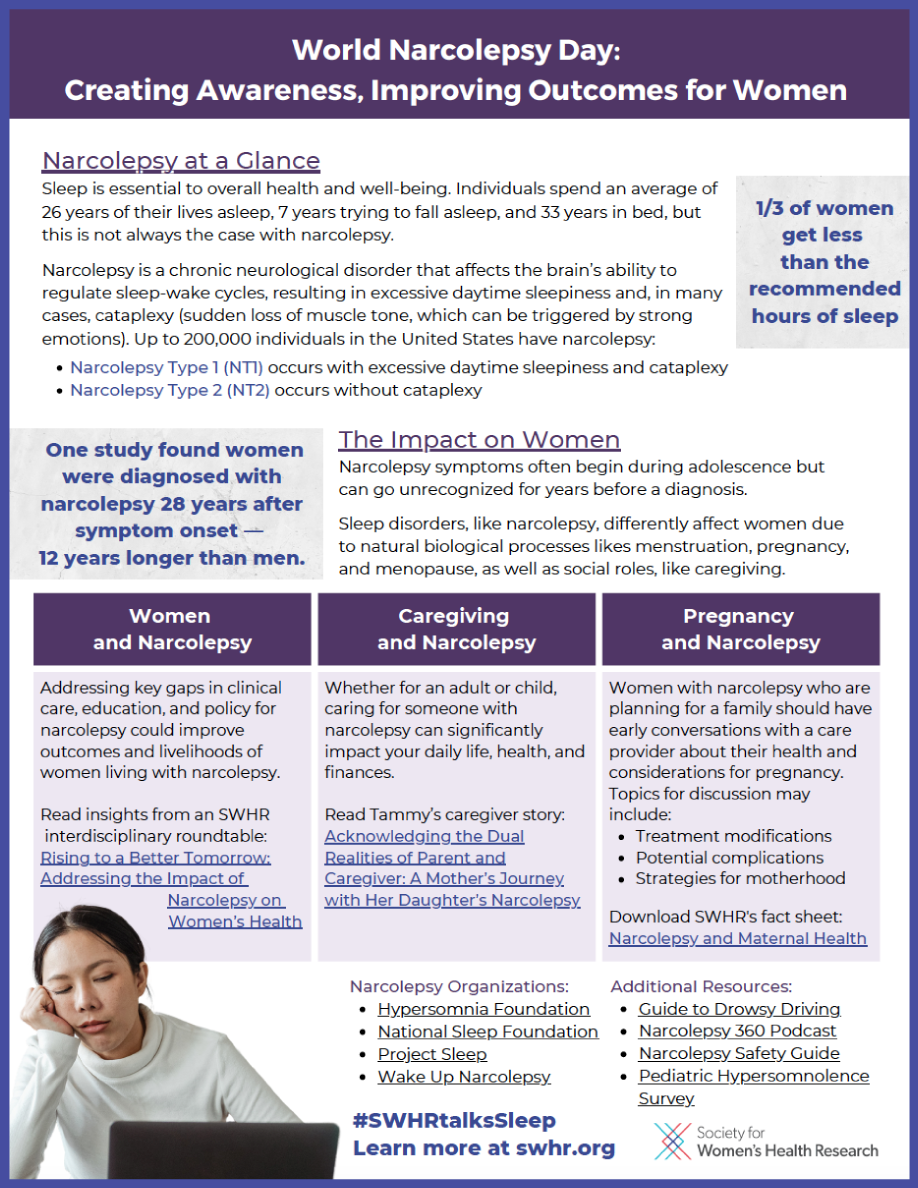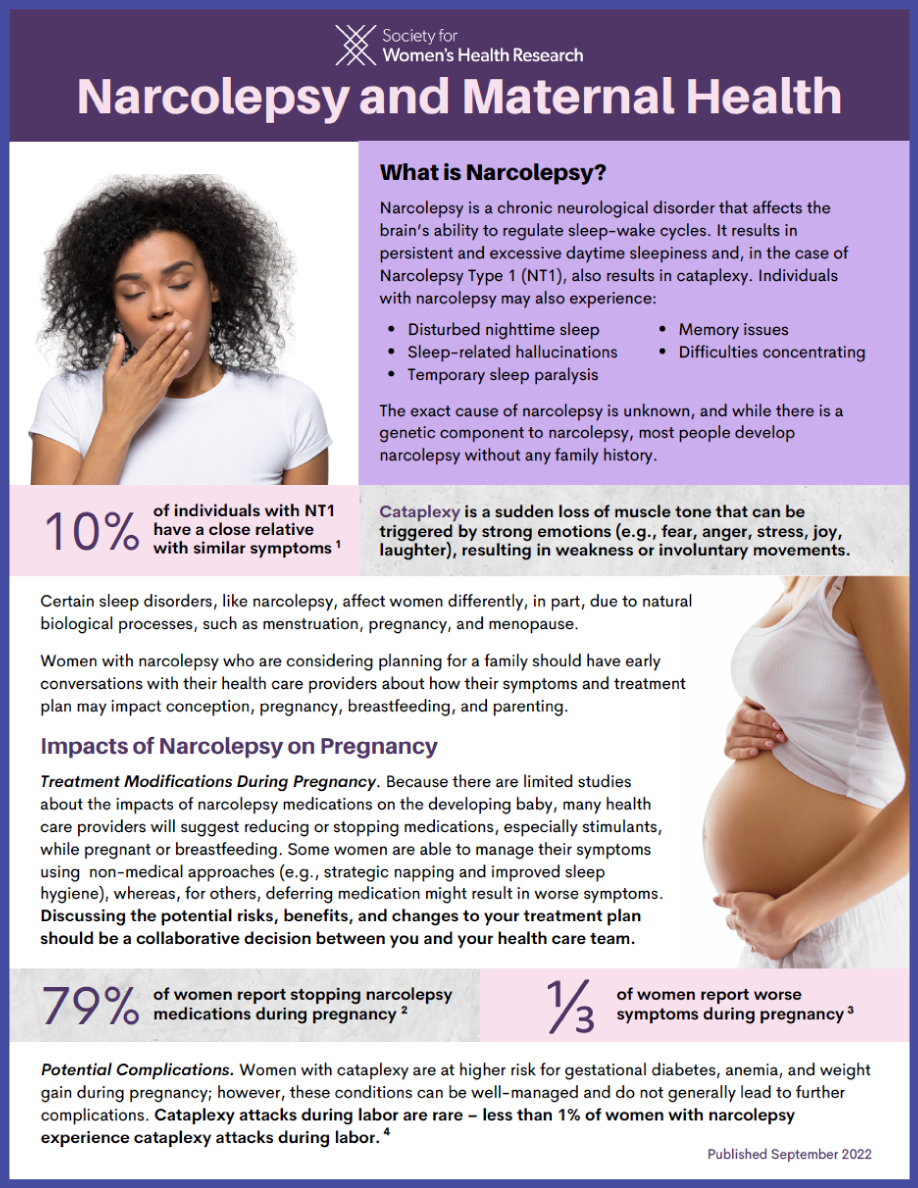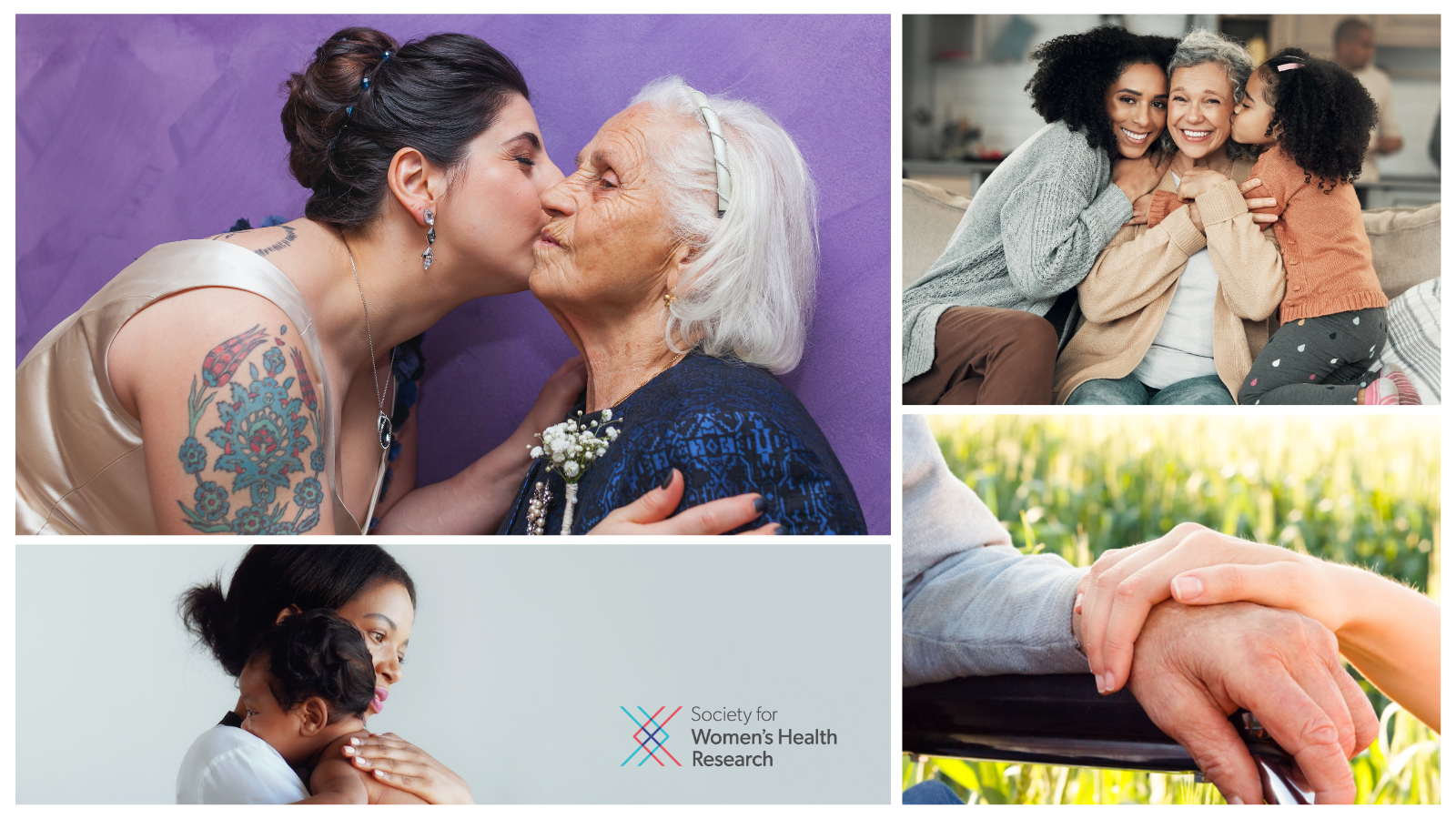World Narcolepsy Day, held annually on September 22, aims to raise awareness about narcolepsy and share resources for living well with this sleep condition.
Narcolepsy (a chronic neurological disorder that affects the brain’s ability to regulate sleep-wake cycles, resulting in excessive daytime sleepiness and, in many cases, cataplexy) and its symptoms often begin during adolescence but can go unrecognized for years before a diagnosis. One study found women were diagnosed with narcolepsy 28 years after symptom onset, 12 years longer than men diagnosed with narcolepsy.
Sleep disorders, like narcolepsy, differently affect women due to natural biological processes like menstruation, pregnancy, and menopause, as well as social roles, like caregiving.
This fact sheet, World Narcolepsy Day: Creating Awareness, Improving Outcomes for Women, was created by the Society for Women’s Health Research (SWHR) to recognize World Narcolepsy Day and share information about the unique challenges women living with narcolepsy face throughout their lifespans.
Download Fact Sheet







